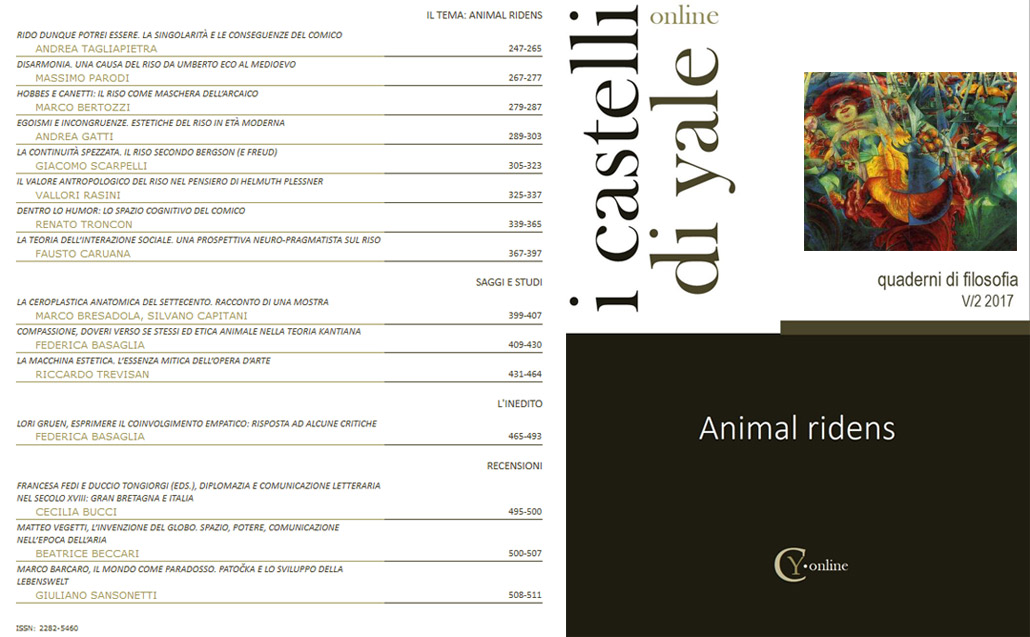<i>HOBBES E CANETTI: IL RISO COME MASCHERA DELL’ARCAICO</i>
DOI:
https://doi.org/10.15160/2282-5460/1541Keywords:
Philosophy, Anthropology, Canetti, Hobbes, LaughterAbstract
Laughter plays an important role in the works of Elias Canetti, as it can be seen in the tragic ending of Auto da fé (Die Blendung), or in the remarks of The Saved language on crying and laughter in the ancient theater. In Mass and Power, we find a famous passage from the Leviathan (the laughter as a feeling of superiority towards others), which shows the constant interest in the “philosophical realism” of Thomas Hobbes. Although, according to Canetti, the philosopher would not have grasped the “animal” origin of laughter. The analysis of these critical reflections, towards Hobbes, will help us to better understand the meaning attributed by Canetti to laughter as “(acoustic) mask of the archaic”Downloads
Published
2018-01-12
Issue
Section
IL TEMA: ANIMAL RIDENS


